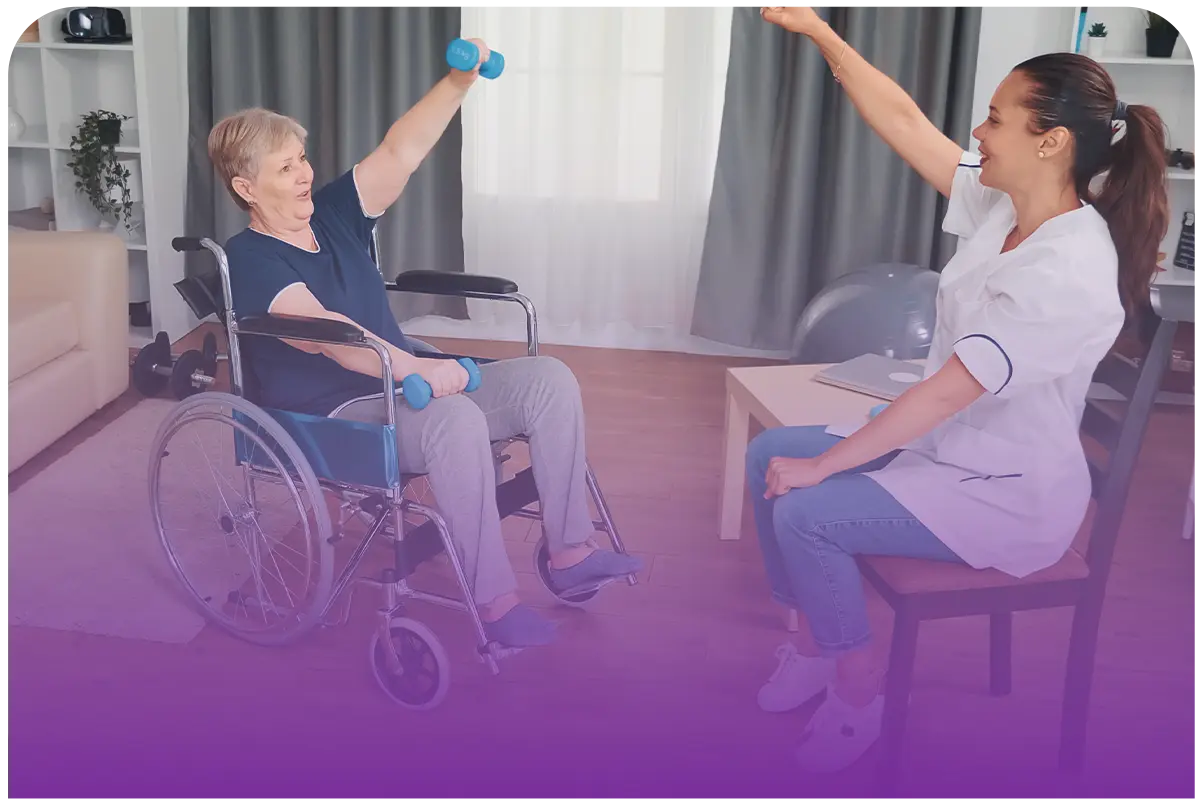Are you looking for a well paid care job with Alpha Care? Click here

Dementia is a complicated condition distinguished by a decline in cognitive abilities that affects daily functioning. It contains various symptoms such as memory loss, impaired reasoning, and changes in behaviour. Comprehending dementia is very necessary for individuals, caregivers, and healthcare professionals alike. In this blog we will look into dementia types, diagnosis and treatment.
Dementia contains several diseases specifically affecting memory, cognition, and daily activities, it worsens with the passage of time, especially among old age individuals. Risk factors include age (especially 65+), hypertension, diabetes, obesity, smoking, excessive alcohol consumption, physical inactivity, social isolation, and depression. Visit our website at Alpha Care and check which services suit your needs the best.
It is a syndrome caused by diseases damaging nerve cells and the brain, leading to cognitive drop beyond normal ageing. However, consciousness remains intact, and changes in mood, behaviour, and motivation may forego cognitive impairment. Dementia imposes physical, psychological, social, and economic burdens on individuals, caregivers, families, and society. Lack of awareness and understanding often results in stigmatisation and barriers to diagnosis and care.
4 Main Dementia Types
Alzheimer’s Disease
Alzheimer’s disease is the most common form of dementia, accounting for a significant portion of dementia cases. It involves the stack of abnormal protein residues in the brain, leading to nerve cell damage and cognitive decline.
Vascular Dementia
Vascular dementia occurs when there is a reduction in blood flow to the brain, resulting in cognitive impairment. This condition often follows strokes or other vascular-related issues that damage brain tissue.
Lewy Body Dementia
Lewy body dementia is characterised by abnormal protein deposits called Lewy bodies in the brain. It can lead to oscillations in cognition, visual hallucinations, and motor symptoms similar to Parkinson’s disease.
Frontotemporal Dementia
Frontotemporal dementia mainly affects the frontal and temporal lobes of the brain, leading to changes in behaviour, personality, and language abilities. It often occurs at a younger age compared to other forms of dementia.
Common Forms of Dementia
Dementia arises from various diseases or injuries that cause direct or indirect damage to the brain. Alzheimer’s disease, the most prevalent form, accounts for 60–70% of cases. Other types include vascular dementia, dementia with Lewy bodies characterised by unconventional protein deposits in nerve cells, and a range of conditions contributing to frontotemporal dementia marked by frontal lobe degeneration. Dementia can also emerge post-stroke, due to infections like HIV, excessive alcohol consumption, repetitive brain injuries (chronic traumatic encephalopathy), or nutritional deficiencies. The distinctions between different forms of dementia are blurred, often overlapping and co-existing.
Recognizing Symptoms
Memory Loss
Memory loss is one of the hallmark symptoms of dementia. It can manifest as forgetting recent events, repeating questions, or misplacing belongings.
Difficulty with Language
Individuals with dementia may struggle to find the right words, follow conversations, or understand written instructions. Language difficulties can impact communication and social interactions.
Impaired Judgment
Dementia can impair judgment and decision-making abilities, leading individuals to make poor choices or engage in risky behaviours.
Changes in Mood and Behavior
Mood swings, irritability, and apathy are common behavioural changes associated with dementia. Individuals may experience shifts in personality and exhibit socially inappropriate actions.
Diagnosis and Treatment
Diagnostic Process
Diagnosing dementia involves comprehensive medical evaluations, including a medical history review, cognitive assessments, neurological exams, and brain imaging tests. Early diagnosis allows for timely intervention and support.
Treatment Approaches
While there is no cure for dementia, various treatment strategies aim to manage symptoms, slow disease progression, and improve quality of life. These may include medication, cognitive stimulation therapy, occupational therapy, and lifestyle modifications.
Providing Care and Support
There is presently no cure for dementia, but substantial support is available for individuals affected by the condition and their caregivers.
Those with dementia can enhance their quality of life and well-being by engaging in physical activity and participating in stimulating activities and social interactions to preserve cognitive function. Visit this article for more.
Furthermore, certain medications can effectively manage dementia symptoms:
- Cholinesterase inhibitors such as donepezil are prescribed for Alzheimer’s disease treatment.
- NMDA receptor antagonists like memantine are utilised for severe Alzheimer’s disease and vascular dementia.
- Medications targeting blood pressure and cholesterol control can mitigate further brain damage associated with vascular dementia.
- Selective serotonin reuptake inhibitors (SSRIs) may alleviate severe depression symptoms in dementia patients if lifestyle and social interventions prove ineffective; however, they are not the primary treatment option.
- In cases where individuals with dementia pose a risk of self-harm or harm to others, medications like haloperidol and risperidone can be beneficial, but they should not be the initial treatment choice.
Risk Factors And Prevention
While age is the primary trigging risk factor for dementia, it is not an inevitable aspect of ageing. Dementia can affect individuals of all ages, with young-onset dementia accounting for up to 9% of cases, defined by symptom onset before the age of 65 years.
Research indicates that individuals can mitigate cognitive decline and dementia risk by adopting healthy lifestyle habits such as regular physical activity, abstaining from smoking, moderating alcohol consumption, maintaining a healthy weight, consuming a nutritious diet, and managing blood pressure, cholesterol, and blood sugar levels. Other contributing factors to dementia risk include depression, social isolation, limited education, cognitive inactivity, and exposure to air pollution.
Creating a Supportive Environment
Creating a supportive and safe environment is essential for individuals living with dementia. This involves adapting the living space, establishing routines, and providing assistance with daily activities as needed.
Caregiver Support
Caregivers play a vital role in the lives of individuals with dementia. They require access to resources, education, and emotional support to navigate the challenges of caregiving effectively.
Community Resources
Communities offer a range of services and resources to support individuals and families affected by dementia. These may include support groups, respite care programs, and memory cafes to promote social engagement and reduce isolation.
Conclusion
In conclusion, dementia is a complex neurological condition that poses significant challenges for individuals, families, and communities. By understanding the different dementia types , recognizing symptoms, seeking early diagnosis, and providing compassionate care and support, we can enhance the quality of life for those affected by this condition. Contact Us today to get the best for your loved ones.













 326 Winchester Rd Southampton SO16 6TW Hampshire UK
326 Winchester Rd Southampton SO16 6TW Hampshire UK




